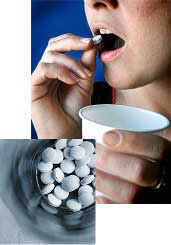
NEW research has triggered fresh fears for the long-term health of children and teenagers who use mobile phones today.
The study warns that the risks are little lower than those alcohol and tobacco pose to youngsters’ health and could also last a lifetime.
It suggests mobile phone use exposes youngsters to the risk of early memory loss and sleep problems, then brain tumours in their 20s followed by the early onset of dementia in their 50s.
Welsh experts claim this latest evidence should force the Government to update and strengthen its warnings on phone use.
They are calling for the issue of new official guidelines urging children to avoid health risks by making their calls shorter than 20 minutes – the time limit when they claim brain damage may start.
Roger Coghill, a Pontypool-based expert on mobile phones and an adviser on the subject to the Department of Health, said: “This latest report joins many thousands of others worldwide that have confirmed mobile phones and their electro-magnetic field definitely has an adverse effect on the brain.
“Yet despite the research I’m not for banning mobiles for children. I live in the real world and know this would be impossible. What youngsters should know is not to make long calls. The longer the phone call goes on the more damage is done and this will be irreversible.”
Recent UK studies have suggested that up to one in 10 children under the age of 16 spends 45 minutes a day talking on mobile phones and it is estimated that up to 90% of under-16s now own a mobile phone.
This latest research was done in Moscow and follows similar alarming reports from scientists in France and Sweden. The Russian study claims the health hazards likely to be faced by young mobile phone users in the future are:
Memory disruption;
Decline in attention spans;
Diminished learning ability;
Increased irritability;
Sleep problem; and,
Increased stress.
It claims this can be followed by 20 to 25-year-olds getting brain tumours and then Alzheimer’s and depression, and 50 to 60-years-olds developing other brain degeneration problems. In their report the Moscow scientists warn these risks are not much lower than the risk to children’s health from tobacco or alcohol.
It states: “We appeal to society to pay closest attention to this coming threat and to take adequate measures in order to prevent negative consequences to the future generation’s health.”
The Department of Health currently recommends that children under 16 should be “discouraged” from using mobile phones for “non-essential calls”.
Responding to the Russian report a spokesman for the Government’s Health Protection Agency, which deals with radiation issues, said: “A review in 2005 by the National Radiological Protection Board concluded there is no hard evidence at present that the health of the public, in general is being affected adversely by the use of mobile phone technologies but uncertainties remain and a continued precautionary approach to their use is recommended.
“A report of the UK mobile telecommunications and health research programmes last year stated that mobile phones have not been found to be associated with any adverse health effects according recent and large UK investigation.”
Source: http://www.happykidsclub.info


